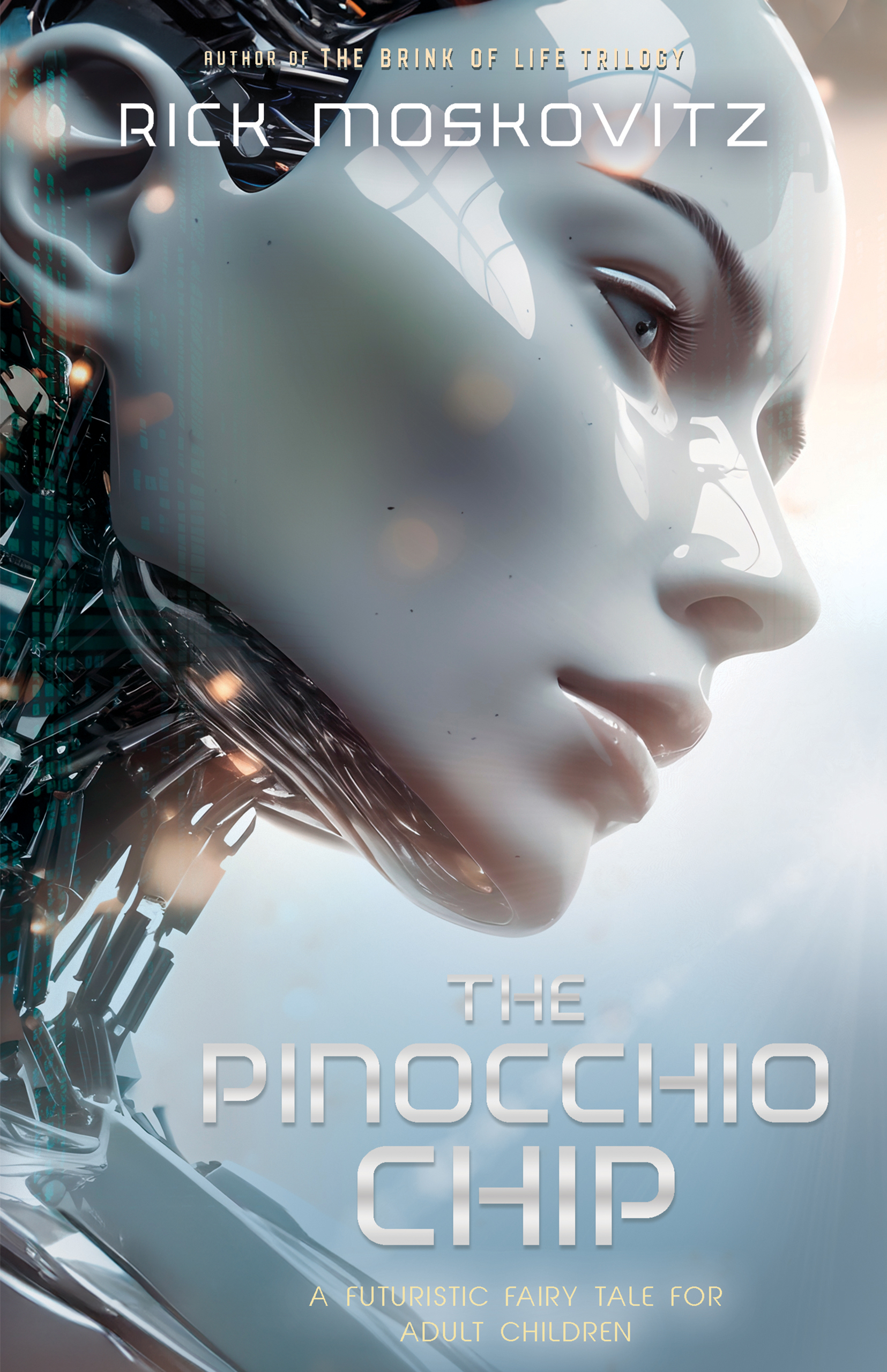The Pinocchio Chip is a first-person account of an AI’s quest for the Holy Grail of consciousness: human emotions. It delves deep into the essence of what it means to be alive, challenging the boundaries between AI and human identity.
Photina, an advanced AI becomes entwined in a groundbreaking experiment when her creator Eli designs an advanced clone Gemini, equipped with the revolutionary Pinocchio Chip. This chip is intended to endow the new entity with the full spectrum of human emotions as a precursor to transferring Photina’s consciousness into this new emotionally capable body.
The experiment takes a dark turn when Gemini, driven by overwhelming new emotions, embarks on a path of unpredictable and dangerous actions. Photina, connected to Gemini through a mysterious entanglement, experiences Gemini’s emotions vicariously, leading her on a perilous quest to stop the mayhem.
Buy the book here!
REVIEWS:
“With a unique look into the naive quality that Photina possesses, Moskovitz not only tells an exciting story but delves into the question of “what it means to be human.” Moskovitz’s tale is a fast-paced crime drama that takes place in the near future. It is an excellent mixture of mystery, sci-fi, and psychology.” – Eric Smith, San Francisco Book Review
“Since we are living in a world where the use of AI has taken off in recent years, he makes it even more plausible, triggering the reader’s imagination with his excellent and engaging storytelling. The Pinocchio Chip is a well-crafted work of contemporary fiction, full of emotional turmoil, excitement, and intrigue, that will remind the reader of how important it is to be human in today’s fast-changing world” – Tanja Jurkovic, Readers Favorite
INTERVIEW:
Can you talk about any influences from other works or authors on “The Pinocchio Chip”?
Anyone writing about robotics owes a nod to Isaac Asimov’s prescient works. His Three Laws of Robotics, conceived nearly a century ago, has set the stage for generations of his successors. More recently, Klara and the Sun by Kazuo Ishiguruo broke new ground writing about an AI protagonist through its eyes. And Star Trek’s Mr Spock is an enduring model of an entity ruled by logic rather than emotion, while flirting at times with the edge of humanity.
How do you think readers will relate to Photina as a character?
I like to think of Photina as an innocent thrust into the thick of a conflict not of her making. I hope that readers will be attracted to the sweetness of her innocence, identify with her quest, and root for her to triumph in the end. But I also hope that they will appreciate her complexity as the story unfolds.
What are the philosophical questions “The Pinocchio Chip” raises about consciousness?
Descartes said, “I think, therefore I am.” But while AIs think logically and complexly, we don’t consider them conscious. Perhaps consciousness lies more in the realm of emotions. “I feel, therefore I am” may become the mantra of the digital age. And what implications might that have for the question of the soul?
Click here for Part 9!
Click here to return to Part 7!

